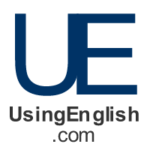There has been a lot of talk in the media, particularly in the New York Times and other liberal outlets, about Donald Trump’s supposed unlawful payment of hush money to aid his 2016 presidential campaign. However, it is important to note that Trump, like any individual or organization, has a First Amendment right to spend money to support his electoral goals. The Supreme Court’s decision in Buckley v. Valeo affirmed that wealthy individuals, such as Trump, can use their own funds to finance election campaigns without restriction.
Therefore, any payments made by Trump during the 2016 campaign, whether from his personal finances or the Trump Organization, are protected by the First Amendment. The campaign expenditure limits imposed by Buckley v. Valeo are unconstitutional and should be overturned to allow individuals and organizations to freely spend money to influence election outcomes.
The categorization of hush money payments as “legal expenses” simply reflects Trump’s belief that the allegations against him were false or that the payments were made to protect his family and support his campaign. Any inaccuracies in accounting entries are minor offenses at best and do not constitute embezzlement or fraud.
If faced with a verdict in the NY State criminal case, Trump should appeal to the U.S. Supreme Court to defend his First Amendment rights as established in Buckley v. Valeo. Legal experts agree that Buckley v. Valeo is outdated and should be overturned, as it restricts the right to spend money on election-related activities.
Trump’s defense in the criminal case should focus on asserting his First Amendment rights and challenging the validity of Buckley v. Valeo at every level of the court system. It is essential to emphasize that Trump’s actions, including the hush money payments, were not illegal and were protected under the First Amendment.





